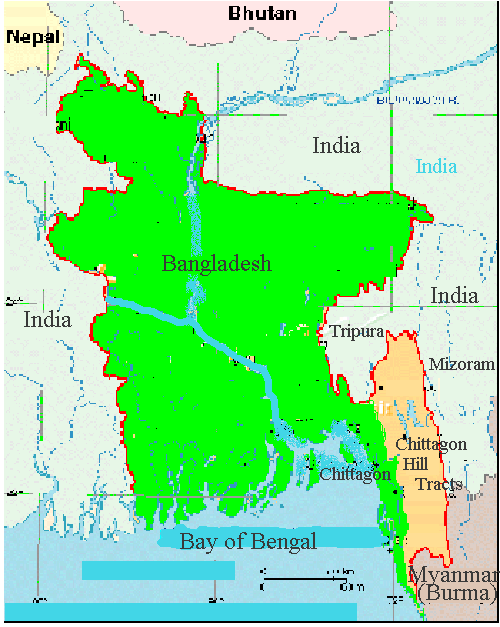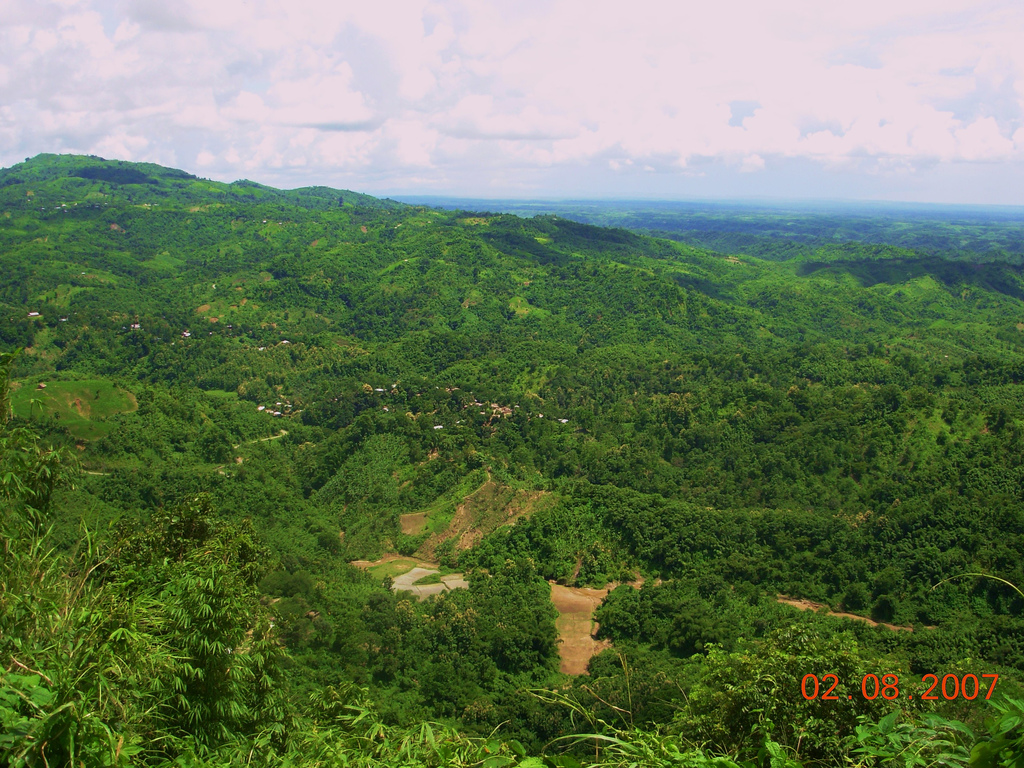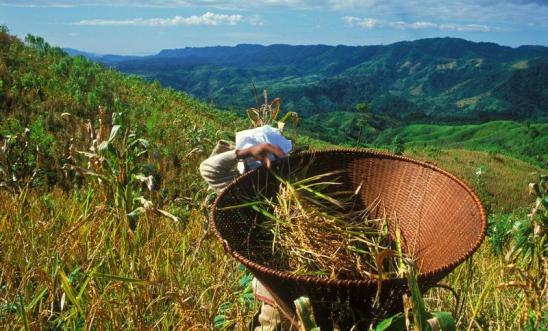Chittagong Hill Tracts
The Chittagong Hill Tracts (CHT ) are an autonomous province administered with an area of 13,295 km ² in southeastern Bangladesh, Myanmar and the Indian states of Tripura and Mizoram bordering.
The CHT are administratively within the three districts Khagrachhari, Rangamati and Bandarban.
The region is, unlike the rest of Bangladesh, hilly and covered by a dense forest. The mountain region is mainly inhabited by 13 population groups which see themselves as the Jumma, the first people who settled in the CHT. They are called Chakma, Marma, Tripuri, Tanchangya, Mro, Murung, Lushai, Khumi, Chak, Khyang, Bawm, Pankhua and Reang. The Jumma differ from the rest of the people of Bangladesh through their language, culture, religion and ethnicity. During the Bengal of the Indian ethnic group are assigned, the Jumma Mongolian origin.
History
The Chittagong Hill Tracts were under the rule Tripuras, Arakans and the sultans before they fall within the sphere of influence of the British East India Company in 1760. This power was initially limited to the collection of taxes. The Administrative District of the Chittagong Hill Tracts was established here in 1860 during the British colonial rule by the Frontier Tribes Act 22 of 1860. In 1900, the mountain area was divided by the ' Chittagong Hill Tract Regulation Act in three Subverwaltungseinteilungen.
The colonial regime protected the Jumma before the influx of immigrants to obtain the social structure and culture. After the separation of Bangladesh from India ( in the context of independence - then East Pakistan ), the Jumma have been classified by the Pakistani government as anti- Pakistani and the influx of non- locals were allowed and encouraged. Furthermore, a gigantic dam was built in the 1960s, of the best arable land ( 40%) and habitat for 100,000 Jumma under water masses buried.
After the independence of Bangladesh after a nine-month war with Pakistan provided the Jumma demands to the new government, the autonomy of the CHT, the preservation of the prior regime of 1900, recognizing the three Jumma kings and the end of the immigration of non - Jumma included. These claims were all rejected by Prime Minister Mujibur Rahman. Since then, the Jumma have been politically persecuted, it came to torture and rape. The army in Bangladesh is omnipresent in the CHT. In response, many Jumma were militant and retreated into the jungle.
In 1997, Jana signed the Samhati Samiti ( JSS ), the political platform of the Jumma, an agreement with the Government of Bangladesh.









